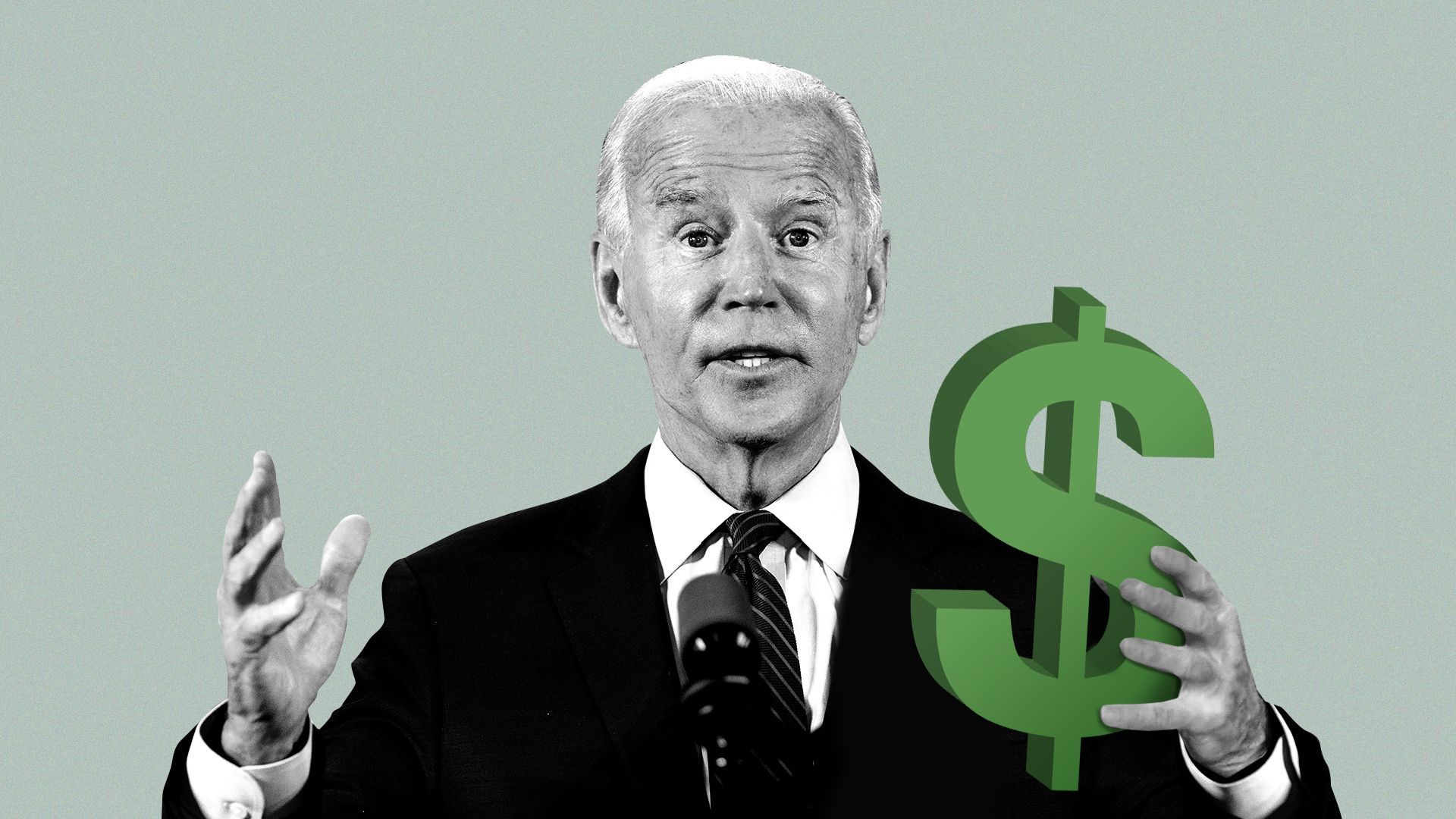Biden's big economic plan plays it down the middle for Democrats
Add Axios as your preferred source to
see more of our stories on Google.

Illustration: Aïda Amer/Axios
Joe Biden yesterday laid out the broad strokes of his economic policy platform, which seemingly is designed to not freak out centrists and not piss off progressives.
Why it matters: Biden has a better-than-even shot of becoming the next president, which means his tax plans could become everyone's tax bills.
Yes, but: Even if he wins in November, Biden wouldn't become president until six months from now. It's hard to see how economic prescriptions written in July 2020 — by any candidate — would be fully applicable in January 2021.
- For context, imagine the irrelevance of most any policy specifics from six months ago, when we were all still at work and school.
What's new: Yesterday he proposed $400 billion in government procurement of U.S.-based goods and services over four years, plus another $300 billion in new spending on U.S.-based tech R&D (with a particular focus on geographies and founder demographics with less access to traditional venture capital).
- Biden also talked a lot during his speech about how companies need to "end the era of shareholder capitalism," which seems to be a reiteration of last year's Business Roundtable pledge.
What's old: He reiterated several pre-pandemic ideas, such as repealing much of the 2018 tax cuts. This would include upping the corporate tax rate from 21% to 28%, and reverting to prior top marginal rates for individuals.
- Biden didn't specifically discuss carried interest or capital gains yesterday, but previously has said he'd like to eliminate the carried interest loophole and the preferential treatment for capital gains for high earners.
- But, but, but: Both Presidents Obama and Trump campaigned on closing the carried interest loophole, yet it's still there. That said, the capital gains move would be a backdoor to impacting carried interest.
What's not in there: There's no wealth tax, Green New Deal, M&A moratoriums, or Medicare for All. There also aren't explicit pay-fors for the $700 billion in new spending, but such things are becoming increasingly passé.
🎧 Go deeper: The Axios Re:Cap podcast spoke with Biden campaign adviser Penny Pritzker, the former U.S. Commerce Secretary who also leads PSP Investments.
